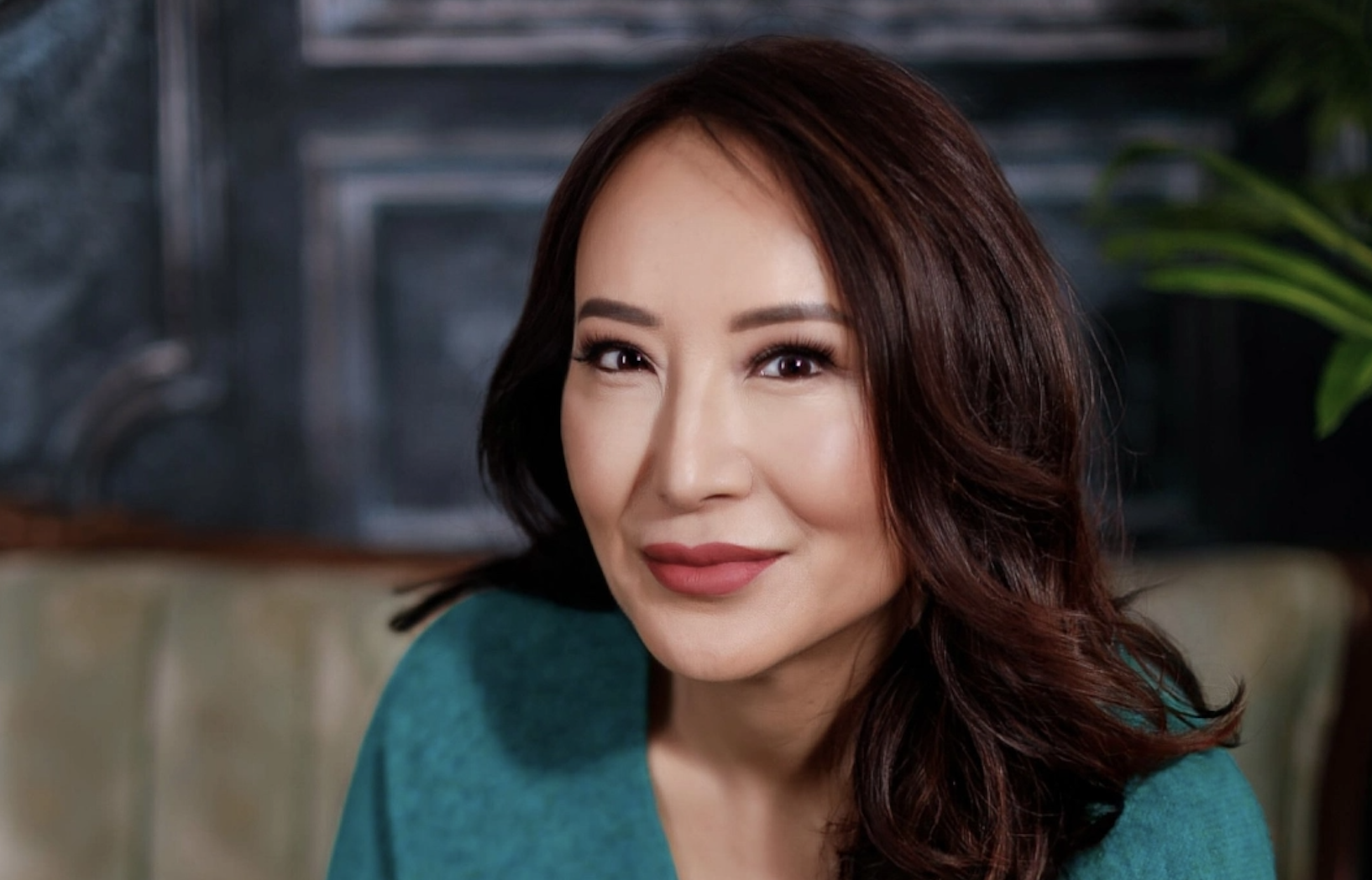This statement is well on its way to becoming the best meme the internet has ever seen. It perfectly states what equality is about, and why some people have trouble grasping the concept: mutual respect.
This statement was made by Lebanese TV shot Rima Karaki who interviewed a London-based Islamist Sheikh on Memri TV in early March. The video has gone viral after her confrontation with the man where he told her to shut-up when she interrupted him. Are we in fifth grade here??
Rima had cut him off because after asking him a question relating to the topic they were discussing ( about how Islamic State managed to attract Christians to its ranks, after reports emerged that two Christians had joined the militant group), instead of getting to the point he thought he had all the time in the world to go on and on about a historical aspect about the issue. Rima then cut in because they were running out of time on air and she felt his answer so far was no relevant to the question, and Sheikh Hani Sibai flipped out feeling as if his dignity was being torn to pieces by a (shock horror) woman.
Media around the world jumped on this story, praising Rima’s effective and mature comeback as a perfect way to combat sexism. Cries of “you go, girl!” could be heard and seen on news websites everywhere, showing that sexism and misogyny is very much alive and kicking in certain parts of the world.
But in an interview with the Guardian, Rima says she does not want to be called a hero (we believe she IS for the eloquent speech she used and not lowering herself to the so-called scholarly elite she was interviewing who displayed toddler-like tendencies with his response) and claims it is more about self-respect.
“Had I not answered, I would have hated myself, and I don’t want to hate myself,” she said. “When he said shut up, it was no longer possible to shut up because I would be insulting myself and would lose everything.”
She did not expect him to react in such a volatile manner when all she wanted to do was get to the crux of his answer in a quicker time.
“This caused him to get angry and he thought I was cutting him off, and I tried to calm him down and tell him not to be angry, and that I want to get the most out of your presence in the program. I told him it’s up to you.”
The Sheikh displayed a complete lack of respect for the fact that he had been invited on the show to share his thoughts, and immediately got on the defense saying he didn’t have to listen to what Rima was saying, and his views were important regardless of what she said.
That’s when Rima had to step in as she felt he was about to cross the line and make this attack personal, when her actions were nothing of the sort in the first place.
“Just one second. Either there is mutual respect or the conversation is over.” And she cut off his mic.
“The studio is like a courtroom, someone has to moderate the conversation. The only difference is that it’s not in the core of my profession to judge people, but it’s my job to moderate the conversation, and I felt it was my right to say that I was in charge and I decide what the subject is, and that it could not go on this way. He decided to speak in a disrespectful manner and I had to cut off the interview,” she said.
What’s interesting is that Rima doesn’t believe the Sheikh’s actions were purely down to sexism, but a lack of respect.
“[His] tone was very authoritarian, but maybe this is the way he talks, and his overreaction was inexplicable,” she said. “I don’t know if perhaps if it was a man, he would not have told him to shut up, but I took it as being disrespectful, whether it was with a woman or if he was a sheikh or whatever his background is. To me it has nothing to do with religion, or political line, it has to do with manners and ethics.”
But she is glad of the worldwide attention the incident is getting because she believes it could have a wide-ranging impact in certain patriarchal societies, and especially in countries where female journalists come up against barriers that males don’t. She hopes her video can play a role in challenging these sexist stereotypes that often try to control all aspects of the media.
Take for instance the video from 2013 showing an Egyptian journalist who was interviewing a Muslim Cleric on TV. Just before they were about to tape the interview, the cleric forced the woman to wear a veil, and she didn’t take too kindly to that.
She told him that the decision to wear a veil should be between a woman and God, not man, and that angered him greatly. It’s a similar incident where a religious guest willingly accepts an invitation for a serious interview, but then decides to create such a furor over something that has nothing to do with why he is there.
Rima also echoed similar sentiments about the emphasis being placed on a woman’s appearance being wrong.
“I object out of respect for the veil, because the veil is not a game we put on or take off according to the whims of some religious men,” she said. “God’s will is more important than theirs, and they have no right to give themselves that power.”
She said it pains her to be forced to wear the veil, but only does it to meet them halfway. However, she will be addressing this aspect of journalism in the middle east more, and we certainly look forward to hearing the discussions that arise from that, if they are shared publicly. For her as a journalist the story is the most important aspect, not whether she adheres to religious constraints of her guests.
“Some people think men have a birthright to exert control over women, but there are a lot of women now who are breaking this image and a lot of men who support this, although more so for women because we have a patriarchal society,” Rima said. “I don’t feel like a hero, I feel like any man or woman with self-respect.
“I don’t think any man would accept that his wife gets insulted and doesn’t respond, or his mother gets insulted and doesn’t respond, or his daughter. He doesn’t have to respond on her behalf, too. She can do that. If he gets out of the way, he would be surprised that she can stand up for herself.”
In the end she reiterated that there are great men and women battling extremism and the social, cultural and religious barriers in Lebanon and other countries in order that every person can live a fulfilled life.
“I don’t want to say that it felt like a vindication, but it maybe gave a good image, that women are capable, because our nations are full of capable women, and I’m the least among them, but the only difference is that I’m lucky to have a platform and a screen,” she said. “Our women’s dignity is high, and all the difficult times they have gone through are testament to this. They give you this strength.”




















